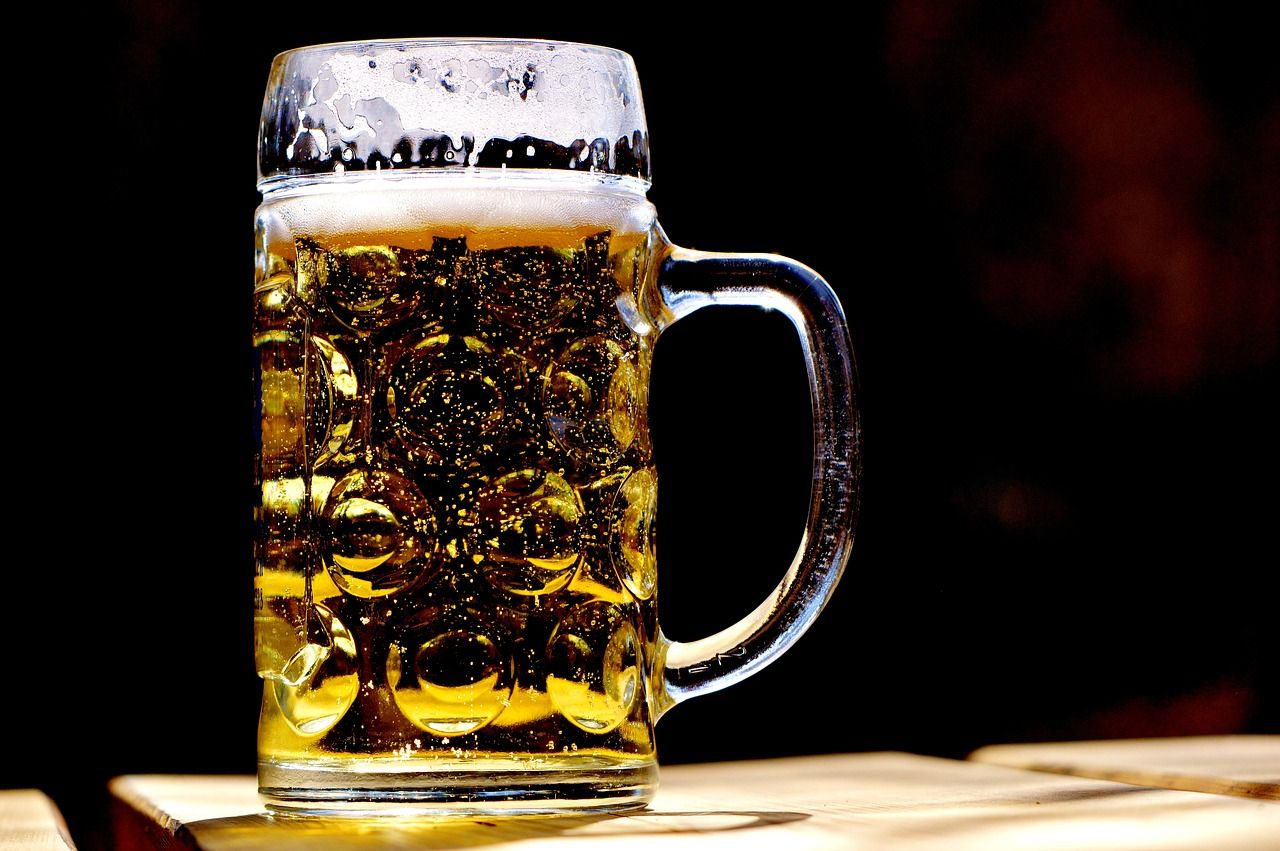Post-Pregnancy Weight Loss Diet Plan:
Putting on weight after giving birth is very common, natural and nothing to be ashamed of. But expecting that the extra kgs gained would more or less fall off on their own, is just wishful.
If you want to lose the gained weight, All you have to do is follow a healthy eating habits, exercise routine and learn how your body works.
You should eat the foods that are recommended and avoid the ones that aren’t good for new mothers. You don’t have to go to a gym to burn a lot of calories. Just a few walks around your neighbourhood with your child in a stroller will do the trick. Getting enough sleep, eating your meals on time, and drinking the right amount of water for your body type are all healthy habits that will also help you lose weight.
So, without further ado, let’s talk about why you gain so much weight after giving birth and what you can do to lose it.

Online Appointment
Post Pregnancy weight gain
There are many reasons why women gain weight after giving birth. When we are pregnant, the hormone HCG from the placenta gets into our bloodstream. This makes us want to eat more. During pregnancy, the HCG hormone controls how our bodies digest food, use energy, and distribute nutrients. We start eating for two, but we might not look like we’ve gained a lot of weight because the fat and energy from the food we eat go first to our baby and then to us. In fact, doctors recommend that women gain a couple pounds more than they did before they got pregnant. Even after giving birth, the weight we gain stays with us. The idea that this weight will fall off on its own or through breastfeeding is wrong.
On top of that, new mothers sometimes have to deal with stress, depression, and thyroid problems. Cortisol is made in the bodies of new moms who are stressed out about taking care of their child. Cortisol makes you hungry and makes you store fat in your lower abdomen. Many moms have postpartum depression after giving birth, which makes them want to “eat their feelings,” which makes them gain even more weight.
After giving birth, some women feel like they have thyroid problems. A thyroid that isn’t working well can also make it harder to lose weight after giving birth.
How Soon Can You Start Dieting After Pregnancy?
Before you start a healthy, well-balanced diet to lose weight after giving birth, one of the most important things to think about is whether or not your body has had enough time to recover from the birth itself. Before you start any kind of diet, you should always think about what your body needs. To ensure your health and that of your baby, you must consume enough food. Therefore, you should consume a well-balanced diet that includes all the essential nutrients in the right amounts.
Remember that you are now in charge of making sure that two people get enough to eat. If you start a diet too soon and stop getting the nutrients you and your baby need, it can hurt both of your health. A new mother shouldn’t even think about going on a diet until her first checkup after giving birth (done at six weeks). She can start eating a normal, well-balanced diet with the right amount of all the important nutrients. This is important because she still needs to take care of herself and the baby. Foods that are sweet and fried should also be limited.
Most people say that new moms shouldn’t make any changes to their diet for at least two months after giving birth. But you should talk to your doctor and a dietitian to find out what your body needs and make a plan that is good for your health and the health of your baby. Mothers need at least 500 kcal more than their basic needs to feed the baby well and recover after giving birth.
When you talk to experts about how to lose weight, it’s important to know a few things to make sure you don’t put your health at risk. Getting the right amount of calories and other nutrients can help you lose weight. Calories are counted and, with the help of dieticians, can be changed to fit your needs. When a dietician makes a plan for your diet, the rules and guidelines below will help you understand and follow it.
Rules You Should Follow When Starting a Weight Loss Diet
Care should be taken when trying to lose weight after giving birth. By six weeks after giving birth, most women have lost half of their baby weight. Most of the time, the rest falls off over the next few months. You can lose weight if you eat well and work out every day. Breastfeeding also helps you lose weight after giving birth. Here are a few more things to think about when starting a diet after giving birth with the help of a dietician.
- Set goals that you can reach.
- Give yourself enough time to get what you want.
- Failure is a part of success, so don’t give up. It’s okay to cheat once in a while.
- Don’t try to make up for your mistakes too much; it’s important to forget about them and move on.
- Nutrition is the most important part of a diet. Talk to a specialist to make sure you and your baby get all the nutrients, minerals, and vitamins you need.
- You can follow a diet plan to lose weight after giving birth, but that won’t be enough. You will also need to work out. Start an exercise plan after you’ve healed, but don’t make it too hard right away. After you have fully recovered, doing light activities can help you build strength and move slowly forward on your way to losing weight.
- Don’t go hungry; eat often and in small amounts.
- Slow down and don’t try to lose more than a kilo a week. A safer goal would be to lose between 300 and 500 grams a week.
Tips to lose post pregnancy weight
Here are a few tips on how to lose weight naturally after giving birth.
Drink plenty of water
Keeping yourself hydrated has many benefits for your body. One reason is that it helps speed up your metabolism. It also makes you feel full, which makes you less hungry. You don’t have to drink the amount of water that is recommended for your BMI right away. Just keep an eye on how clear your urine is. If your urine isn’t clear, you need to drink more water. If it’s clear, you know you’re getting enough water.
Exercise
A post-pregnancy weight loss diet plan can help you lose weight after giving birth. Typically, a post-pregnancy diet won’t help you lose weight enough to achieve your goals. If you want to lose weight quickly after giving birth, you need to include exercise in your post-pregnancy weight loss plan. Consider doing weight training or aerobics to burn calories and make your muscles and bones stronger. New moms should try to fit exercise into their daily schedules. Not only will it help them lose weight after giving birth, but it also has many other benefits. It can help them deal with the stress of having a new baby in the house, make them feel better, and help them sleep better.
Don’t compromise on sleep
Now, this may seem hard to do when your toddler wants your attention all the time, but not getting enough sleep can make it hard to lose weight after giving birth. When you don’t get enough sleep, you’re more likely to do things like eat and drink too much, which doesn’t help you lose weight. If you don’t get enough sleep at night and are tired during the day, your body will release the cortisol hormone, which will make you feel even more hungry.
Have realistic expectations
Yes, stories about how quickly celebrities lose weight after giving birth may make you think you can get back to your pre-pregnancy body in a couple of months, but these stories aren’t always true.
Even if they are, don’t forget that they have a whole team working for them to plan their weight loss journey after giving birth. Researchers have found that it can take an average of more than a year to lose all of the baby weight. It might take you a year or two to get back to how you looked before you got pregnant, if that happens at all.
Keep healthy snacks close at hand
When a woman is breastfeeding, her hunger can come on quickly and in waves. If you don’t deal with these hunger spikes well, they could make you gain weight. In addition to fruits, nuts, sprouts, vegetables, and yoghurt, you should keep a stock of them so you can eat them when you’re hungry. This could help you lose weight faster than the average person.
Join a post-pregnancy weight loss support group
Your post pregnancy weight loss journey can be more motivating if you join a weight loss group.
Post-pregnancy diet plan
You should never go on a crash diet to lose weight after giving birth. With a good post-pregnancy weight loss diet plan, you should try to lose the weight you gained during pregnancy slowly and effectively. Women need between 1500 and 2200 calories a day to keep their bodies running normally. If you are breastfeeding, you should eat at least 1800 calories a day to keep yourself and your body healthy.
Aim to lose about 1.5 pounds a week; you don’t want to lose weight too quickly after giving birth. If you lose weight too quickly after giving birth, your body may release toxins into your blood. These toxins could then get into your breast milk, which could be very bad for the baby. If you’ve been eating more calories than you need, try cutting 500 calories from your diet every day. You could do this by either eating less or being more active.
Most plans for losing weight after giving birth tell new mothers to eat 5–6 small meals a day, with healthy snacks in between. They also tell women not to skip meals because it does more harm than good and makes them overeat at other times. Don’t skip breakfast, especially if you’re on a plan to lose weight after giving birth. It will keep you from getting tired later in the day and help you stay more focused on your daily tasks.
Online Appointment

How it works?
Our diet plan for new moms is for all of them, no matter where they live. This diet plan helps new moms get rid of the extra pounds and inches they gained during their pregnancy. This diet plan not only helps new moms lose weight and inches, but it also helps them get the nutrients their bodies may need.
Also, all of the meals in this diet plan focus on healthy fruits and vegetables that are in season. So, it’s more fun because you get to try and eat all the seasonal fruits and vegetables that are best for your body. Contact us to get a cusotmised post pregnancy weight loss diet for you with your individual requirements and body type.
Foods to eat
Once you’ve decided to start a diet plan to lose weight after giving birth, make sure you’re eating the right kinds of foods to help you reach your goal. You can help yourself with the following foods:
Fiber
Fiber-rich foods are good for your digestive health. When you eat soluble fiber, your hunger hormones stay in check. This makes you eat less.
Protein
In addition to boosting your metabolism and decreasing your appetite, lean meat, eggs, fish, and dairy products are good sources of healthy protein.
Complex carbohydrates
Due to the fact that they take longer to digest, complex carbohydrates provide you with energy throughout the day.
Unsaturated and Polyunsaturated fats
To lose weight after pregnancy, don’t completely stop eating fat. Make your body healthier by eating foods high in unsaturated and polyunsaturated fats.
Foods to avoid
Your post-pregnancy weight loss will be successful if you avoid certain foods. Here are a few:
Food with added sugar and/or refined carbohydrates
Foods that are high in sugar and refined carbs are high in calories but not very good for you. Foods that are high in calories but low in nutrients can make you gain weight and make you more likely to get heart disease, cancer, or diabetes. Try to stay away from drinks with lots of sugar and carbonation, as well as other processed foods like packaged cookies, cakes, and the like. Instead, choose whole foods. If you need something sweet, choose desserts from an organic bakery instead of cookies that have been processed and packaged.
Processed food products
You should avoid processed foods, as we have already discussed. Fast food and prepackaged foods are processed foods because they contain sugar, fats, calories, and salt. All of these will make it hard for you to lose weight. Instead, try to eat fresh, whole foods that are high in nutrients, like fruits and vegetables.
Alcohol
Alcohol is calorie-dense, but it provides no nutrition. Getting fat around the middle is also caused by drinking. Not only does it stop you from losing weight after giving birth, but it can also be bad for your baby’s health. Your breast milk can pass on a small amount of alcohol to your child. You may also temporarily make less breast milk if you drink alcohol. Not to mention that you could become addicted, which would make it hard for you to sleep normally
How Can You Lose Weight While Breastfeeding?
It is a known fact that women who breastfeed lose weight faster than women who don’t. This is because a lot of calories are burned when a woman is breastfeeding. This is something to keep in mind when planning a diet to help you lose weight while breastfeeding, and you may need to eat more calories to make sure you have enough breast milk.
As was already said, women who breastfeed should eat at least 500 more calories than other women because breastfeeding takes a lot of energy. When you’re breastfeeding, it’s best to be flexible with your diet because the amount of energy you use during a feeding session depends on how much your baby eats during the session. Try to eat at regular times and change your diet based on how much energy you have.
When Will You Get Your Pre-Pregnancy Weight Back After Delivery?
How long it takes you to get back to your pre-pregnancy weight after giving birth depends a lot on how you ate before and during your pregnancy and how fast your body burns calories. Some women can get back to their pre-pregnancy shape in as little as a few months, while others may need a year or two. Be patient and strong, and remember that losing weight is a process that takes time.
Negative factors that could affect weight loss
Weight loss can be negatively affected by the following factors:
- Morning sickness- Morning sickness is common during pregnancy, and it is not unheard of for nausea to last after giving birth, especially if a woman was very sick before giving birth. Too much morning sickness or nausea can make you lose your appetite (anorexia), become dehydrated, and lose a lot of weight. Hyperemesis Gravidarum (HG), a more serious condition, can also cause a woman to throw up a lot and lose nutrients. So, if you feel sick in the morning, you should see a doctor right away.
- Food aversions – Poor nutrition and dehydration can result from food aversions, negatively impacting postpartum health.
- Delivery method – weight gain and loss can be complicated by C-sections.
Talk to Dr. Jyoti about any worries you might have about your routine or diet. You can talk to her to find out more about other things that can make it harder to lose weight after giving birth.
Guidelines to Help You Achieve and Maintain a Healthy Weight After Pregnancy
It’s important to have rules that tell you what kind of weight loss is healthy, especially when a woman is trying to lose weight after giving birth. Here are some tips that will help you lose weight while keeping you healthy and safe:
- Avoid drinking aerated beverages while on a diet. They have a lot of sugar and calories that don’t do anything. They have no nutrition, so it’s best to stay away from them.
- Befriend fibre. To keep your digestive system healthy, try eating meals that are high in fiber. This makes it harder for you to gain weight and keeps your nutritional balance the same.
- Carbs are good. Eat complex carbs, which are good for you. This is because carbs are what give you energy all day long. They break down more slowly during the day, so your energy stays steady.
- Keep in mind that not all fats are unhealthy. Include foods with a lot of unsaturated or polyunsaturated fats in your diet because they can help keep your body healthy. Almonds have a lot of good fats and are important for heart health. So, don’t give up fats all together.
- Watch how much you eat. Keep your meals small, often, and full of good things for you.
- Every diet needs snacks, but they need to be healthy. So, eat healthy snacks like almonds, carrots, or fruit, and stay away from snacks like chips and candy that are high in fat and sugar.
- Talk to a dietician to find out what your body needs and then change your diet to meet those needs. You should keep an eye on your nutritional needs and try to meet them as much as possible.
What Else Can You Do for a Healthy Weight Loss after Delivery?
Weight loss cannot be achieved through diet alone. To lose weight, apart from following a diet, you should do the following activities.
- Exercise: It’s important to have a good workout plan that works with your diet and helps you lose weight in a healthy way. When you work out, don’t do it with the goal of losing weight. Instead, work out with the goal of getting fit and staying healthy.
- Rest: No matter what you eat or how often you work out, resting helps your body recover and adjust to the new plan. Make sure you get enough rest during the day and after your workouts. Make sure you take a break when you’re tired to get your energy back.
- Sleep:Get enough sleep. When you sleep, your body slows down. This helps your body heal and gives you more energy.
Talk to Dr Jyoti for more advice on routines you can implement to ensure healthy weight loss. During her diet plans, she personally guides each of her clients individually according to their body requirements and goals in mind.
Summary
This blog post should have helped you figure out how to lose weight naturally after giving birth. Most experts say that mothers shouldn’t weigh themselves until at least two weeks after giving birth. Even so, it’s probably better to measure their waist size instead of their weight because their weight won’t just show their body fat.
Moms who follow a diet plan to lose weight after giving birth may start to see results as early as the first month after giving birth. Doctors say that pregnant women should gain 25 to 30 pounds so that they can feed their baby well. Some moms lose up to 20 pounds in the first month, which means they may already be back to how they looked before they had a baby.
Six weeks after the day you got pregnant, your belly will look flatter and smaller. If you’ve been able to stick to your plans to lose weight after giving birth, you’ll probably be back to your weight before you got pregnant in a couple of months. Most people lose their baby weight in nine months, unless they gained more weight during their pregnancy. But this isn’t a hard-and-fast rule. Every woman loses the weight she gained during pregnancy at her own pace, based on what she eats and how much she works out every day.
If you want to lose weight quickly after giving birth, don’t give in to fad diets. It will hurt you and your baby. You should be fine if you eat a healthy diet full of complex carbs, proteins, and fiber, drink enough water, get the rest you need, and get some exercise every now and then, in addition to running after your child. In no time at all, you will have lost all the extra weight that was bothering you.
Post Pregnancy Weight Loss Diet Plan FAQs
-
How long does it usually take for a woman to lose weight after giving birth?
It depends on how much weight you put on. After giving birth, a woman can try to lose 2 kg per month.
-
Does having a second child make it harder to lose weight?
No, absolutely not. If you keep your diet, physical activity, sleep, and water intake in balance, it will be easy for you to lose weight and stay healthy.
-
How do you get rid of belly fat when you're breastfeeding?
Breastfeeding is a big job that burns a lot of calories, especially if you do it while sitting down. Along with this, you can easily lose belly fat if you eat a well-balanced diet high in protein and fiber, eat small meals often, drink at least 10–12 glasses of water, and do regular physical activities like walking.
-
Why did I gain weight after giving birth?
Women gain weight after giving birth for a number of reasons.
- Irregular and sporadic eating habits, with long breaks between meals.
- It’s important to eat food with a lot of calories to meet the needs of breastfeeding, but those calories need to come from protein, fiber, complex carbs, and good fats. Most people tend to eat simple carbs and fats, such as panjeeris, fried foods that are high in oil, sweets, desserts, cereals, refined products, etc.
- Taking in less water.
- Poor sleeping pattern.
- Nothing being done.






